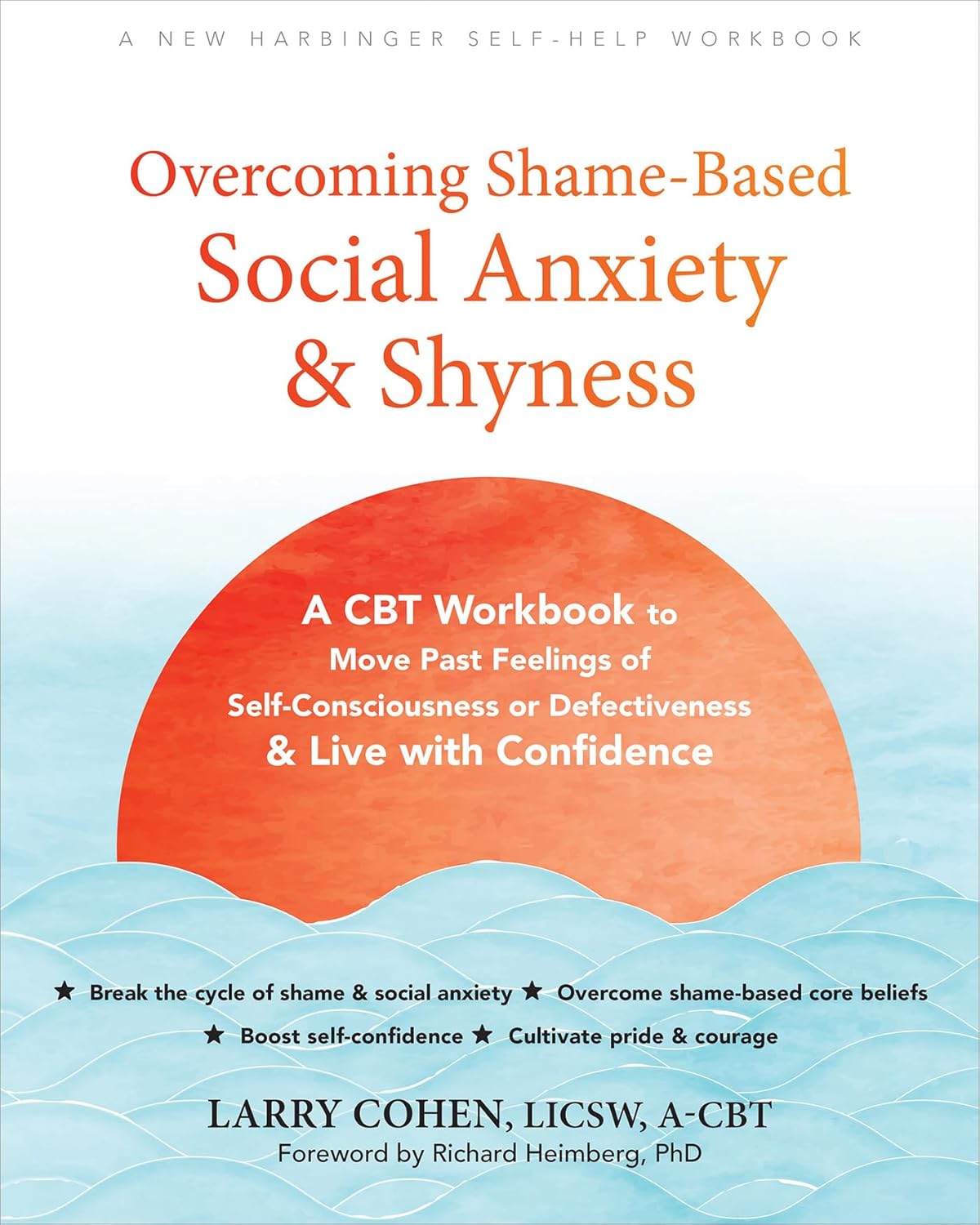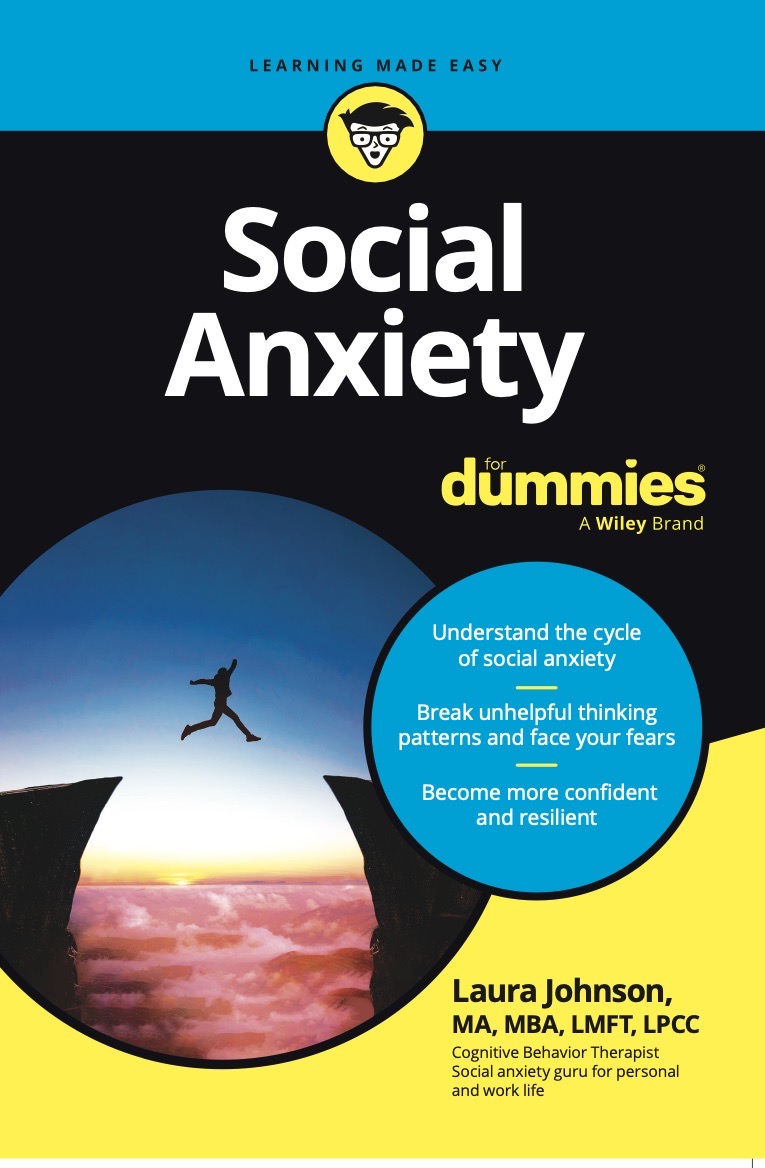One of the most challenging aspects of social anxiety are the thoughts that come with the experience. People struggling with social anxiety experience a barrage of negative self-judgments and the fear that others view them in that same negative light. Over time, these self-judgments lead to avoidant behaviors such as disengagement in social interactions, substance-use in order to engage, or avoidance of social situations altogether. Numerous methods have been proposed around how to work effectively with the thoughts that come with social anxiety.
Cognitive Defusion
The model of Acceptance and Commitment Therapy (ACT) brought a new dimension to the family of Cognitive Behavioral Therapies (CBT) with the introduction of the concept of cognitive defusion. Defusion was presented as an alternative to more traditional methods of working with thoughts such as cognitive reframing. Defusion claims that despite the strong pull to do something with or about our thoughts (change them, prove them, disprove them, act on them) we can, in fact, simply acknowledge them as just thoughts, and move on with our lives. It proposes that we don’t have to believe our thoughts, nor do we have to disbelieve them. We don’t have to buy into them, nor do we have to prove them wrong. We don’t have to identify with them, nor do we have to push them away and deny their existence.
A frequent question that comes up when discussing defusion is: If we aren’t concerned with figuring out whether the thought is true or not, what DO we do with the thought? This is where things get confusingly simple – we do nothing. The human mind hates this proposition given that its primary job is to solve problems, and painful thoughts seem like pretty significant problems. While the notion of noticing a painful thought, and doing nothing about it might seem absurd, this technique has been proven to have a significantly positive impact on the lives of individuals with social anxiety.
 Cognitive defusion helps decrease how much individuals with social anxiety struggle with trying to figure out whether or not their thoughts are true. Because most thoughts evoked by social anxiety are judgments, through increased awareness individuals can start to recognize that there is no truth, but rather only their perception of themselves and others in any given moment. Defusion fosters this process through awareness of thoughts without reaction to them. Instead, it suggests taking that effort and directing it towards what you (not your anxiety) want to do. Anxiety rarely shows up in any situation where something isn’t at stake. In other words, if you didn’t care about what was going on, you wouldn’t be anxious.
Cognitive defusion helps decrease how much individuals with social anxiety struggle with trying to figure out whether or not their thoughts are true. Because most thoughts evoked by social anxiety are judgments, through increased awareness individuals can start to recognize that there is no truth, but rather only their perception of themselves and others in any given moment. Defusion fosters this process through awareness of thoughts without reaction to them. Instead, it suggests taking that effort and directing it towards what you (not your anxiety) want to do. Anxiety rarely shows up in any situation where something isn’t at stake. In other words, if you didn’t care about what was going on, you wouldn’t be anxious.
Values-Based Action
This is the problem with avoidant behavioral responses to social anxiety – it pulls individuals further and further away from the relationships that they truly crave. ACT suggests that once we decrease the effort put into trying to argue with our minds, it actually frees up more resources to be able to invest in how we WANT to show up. We call this our values; how one wants to show up to their life, and in this case, specifically how one wants to be when interacting with others. Not only does this have a greater chance of leading to a more meaningful experience, but that experience leads to a greater chance of less judgmental thoughts in the future. Let’s look at how this concept works with an example.
Jen struggles with the belief that people think that she is annoying. She’s out with colleagues and starts to worry that people don’t want to talk to her because she is annoying. She hears that people around her are talking about a new TV show that they all really like. Jen has also been watching the show and loves it, but fears that her colleagues might not want her input because no one has made eye contact with her in a while, and no one has explicitly asked her what she thinks. Jen’s typical way to respond to this type of anxiety provoking situation is to start to make assumptions about what her colleagues think, perhaps try to predict what she can do to make herself more likeable to them. All this while, Jen is actually missing out on connecting with her colleagues in a real and natural way. If Jen were to use defusion, she might recognize that she is having the thought that “They’re annoyed with me,” or “They don’t want to talk to me,”, and instead of analyzing the situation to prove, disprove, or counter these thoughts, she would then direct her attention to her values. A values-based question she might ask herself is “How do I want to interact with my colleagues right now?” or “What is important to me right now?” or “What qualities do I want to bring to this interaction?”. Notice that the focus shifts from what the other person might be thinking to how SHE wants to show up to the moment. This approach is significantly more likely to help Jen identify an effective response than the former. By engaging more fully with her colleagues, she might have less frequent or less severe judgments about herself the next time that she opts to spend time with them.

One final note on this topic involves the incorporation of self-compassion. Many people with social anxiety have forced themselves to engage socially, frequently bullying themselves or berating themselves through much of each experience. A crucial component of ACT that goes hand-in-hand with defusion is self-compassion. No one in the history of the world has signed on a dotted line and said “Yep! I want to fear others and feel awful about myself.” No one with social anxiety chooses to feel or think the way that they do. Holding a gentle and compassionate stance with oneself through a difficult experience has been shown to decrease the level of suffering that comes with it. Therefore, a psychological muscle to develop in conjunction with defusion is the ability to be kind and compassionate towards oneself and one’s pain.

For more information and education about ACT for Social Anxiety, refer to http://www.actonsocialanxiety.com/
Authored by,
Dipali Bharadwaj, PsyD
Licensed Clinical Psychologist
NSAC Chicago: Depression and Anxiety Specialty Clinic of Chicago
Share this blog post.











